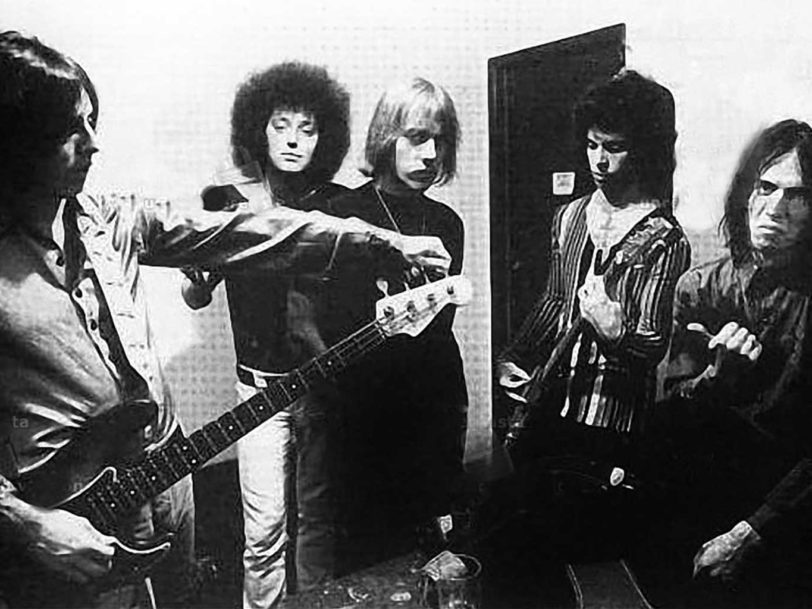It is 1968. America is burning. The Vietnam War is a flashpoint. Student protests are brutally put down. The Summer Of Love’s ideal of peace and understanding is in tatters. Bobby Kennedy, Presidential hopeful and younger brother of the late JFK, has been assassinated. Dr Martin Luther King, dignified and brilliant civil-rights leader, has been assassinated. Soul icon James Brown takes the stage in Boston and performs a televised show in an attempt to keep his fans indoors. In Detroit, another singer is stirring: instead of preventing an uprising, however, MC5’s frontman, Rob Tyner, is about to incite one.
Riots had ripped through Detroit the previous year. It remains a tinderbox. There is work in Motor City, but also horrendous racism, secretly strengthened by the manipulation of public resources to reinforce ingrained inequality. Like his idol James Brown, Tyner has something to say. Unlike James Brown, who is urging his fans to stay in school, to work hard and not to vent their frustration in the streets, Tyner’s message is somewhat less measured and emollient: “Kick out the jams, motherfuckers!”
The shout represents all the anger, confusion, desperation for freedom and explosive energy of 1968; it’s exponent, one of the greatest rock’n’roll singers of the era. Tyner never developed into the widely-loved figure his local rival, Iggy Pop, became. Nor did he rival James Brown. But MC5’s figurehead had something vital to say, and nobody could deliver it like he could.
Time for Tyner: birth of a rock revolutionary
The influence of Black jazz music on white rock’n’roll is still not fully acknowledged. Lou Reed said that, as a young man, he’d hum the angular melodies of Ornette Coleman; Eric Clapton was not the only musician who wondered if you had to take heroin to become as brilliant as Charlie Parker (as if).
The young man born Rob W Derminer, on 12 December 1944, was another rock pioneer who first heard freedom in jazz. He loved John Coltrane, the saxophonist who blew his entire life into a brass tube in search of liberation from earthly toil. So when Derminer was looking for a musical alter ego, a name that suggested liberation and identification with the 60s’ more out-there sounds, he took the surname of McCoy Tyner, Coltrane’s dazzling piano player. The renamed Rob Tyner then joined a Detroit band full of talent and attitude, but short of a direction: Motor City 5. He auditioned to be its bass player, but was too strong a personality to be responsible for a background rumble. Get out front, Brother Rob Tyner. Grab that microphone, tell the world how you feel.
Until then, there’d never been a band like MC5. Loud. Political. Sexy. Raging. Uncompromised. Kinda pretty; nasty, too. Hippie, but not flaccid. They were full of purpose, yet eventually riven by squabbling, as revolutionary movements are, and, contrarily, their lyrics sometimes revealed teenage longing. MC5 didn’t just want to make a mark on rock’n’roll, they wanted to change it radically. Hell, they wanted to change the world.
They failed on both counts… gloriously. Vaingloriously. But they came close on the first mission: punk could never have happened without their fury, and it drew lessons from their pyrotechnic ascent and dismal plummet to Earth as men out of time – their moment both four years gone and four years yet to arrive. MC5 were brilliant but doomed, an archetypal rock’n’roll story. And out front, singing as hard as any hard rock singer ever did – yet really singing, and writing lyrics that expressed all the joy and frustration of being young in the late 60s – was a guy in hippie threads and a backcombed white-man’s Afro. He couldn’t be Coltrane, he was too leftfield to be James Brown, but he sure was somebody: Rob Tyner.




